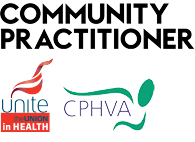
The Prime Minister launched the government’s 10-year plan for the NHS in England – 10 Year Health Plan for England: fit for the future – in early July.
The government intends to ‘transform healthcare’ by moving the NHS away from its current form in three shifts:
> From being only a sickness service to a preventative health service
> From being a hospital-dominated service to being a community, neighbourhood health service
> From the current analogue NHS to a digital health service.
Among its many statements, the plan recognises the importance of the early years and how ‘vital’ it is ‘to get prevention right, as well as addressing any potential developmental concerns, particularly in the critical 1001 days.
Regarding HVs specifically, the plan also states the government ‘will introduce new models where health visitors can administer vaccines to babies and children in underserved groups, to increase uptake.’
The plan also promises to ‘ensure that health visitors fully support children’s broader development as part of this government’s plan
to give children the Best Start in Life [see page 8] – including in supporting higher uptake of and better quality early childhood
developmental checks’.
Unite national officer for health, Richard Munn commented: ‘I’m pleased that the government is looking at long term solutions
to structural problems within the NHS. For too long a sticking plaster approach has been taken and staff within the health service are
now on their knees, desperate for positive change to their pay, terms and conditions and to care for people better.’
RCPCH President Professor Steve Turner welcomed the plan as an opportunity for children. He said: ‘Children’s needs are
unique, and these new models of care must be underpinned by adequate staffing, training, and support for professionals working in
community settings, alongside equitable funding.’


